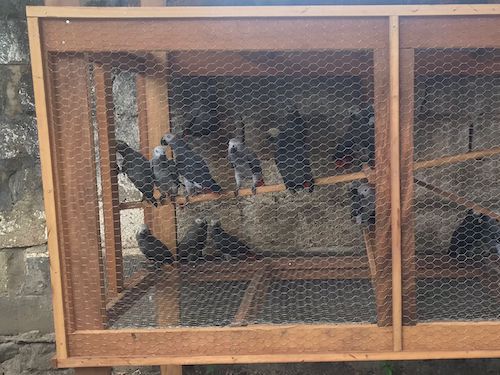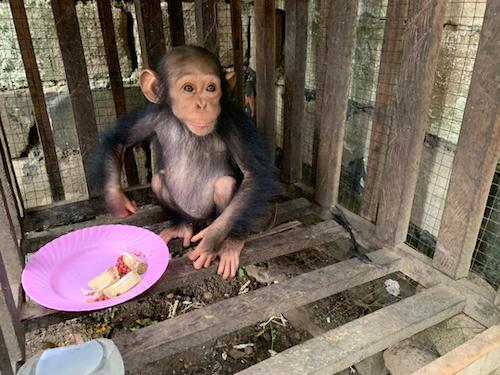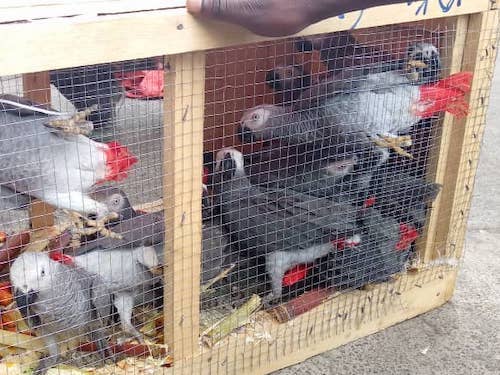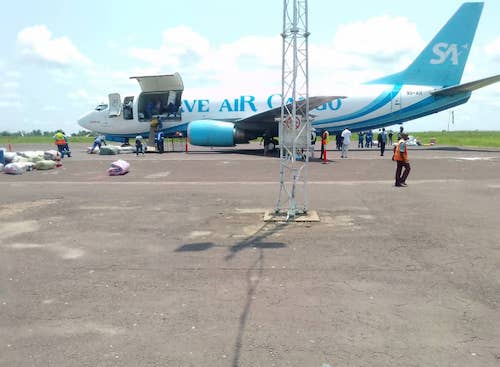On the 6th September 2021, 60 African Grey parrots were far from their home of the lush African forests; instead, they sat on a dusty runway in the remote town of Lodja in Sankuru province, Democratic Republic of Congo (DRC). The once wild parrots were going to be illegally flown to Kinshasa, the capital of the DRC, from which they would have been exported to an unknown destination and sold as pets or “breeders” on the international pet market.
Unfortunately, this is an all too familiar tale. The practice of capturing wild African Grey parrots and exporting them to sell on the international market has meant that hundreds of thousands of them have had to endure a similarly harrowing experience.
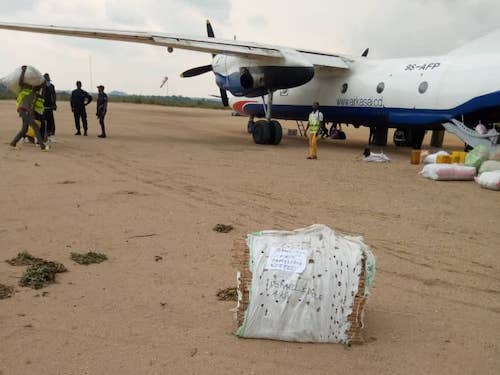
Sadly, this archaic practice was until recently permitted under the Convention on International Trade in Endangered Species of Wild Fauna and Flora (CITES) with DRC a leading exporter of wild African Greys. Although international trade is no longer permitted, traffickers still attempt to get wild parrots out of the country by exploiting weaknesses in permitting systems and border controls.
Fortunately, investigators working with Conserv Congo were quick to act, working with local law enforcement to rescue the parrots from their gloomy future and arrest the perpetrators. The shipment was accompanied by a confusing array of papers, including falsified CITES permits for another species, Jardine’s parrot Poicephalus gulielmi, which can still be legally trapped and exported. The laundering of Grey parrots as Jardine’s parrots has been highlighted previously by the World Parrot Trust. Although quotas for this species were reduced as a result, this finding reinforces the need to immediately end the legal trade in all wild parrots from the region.
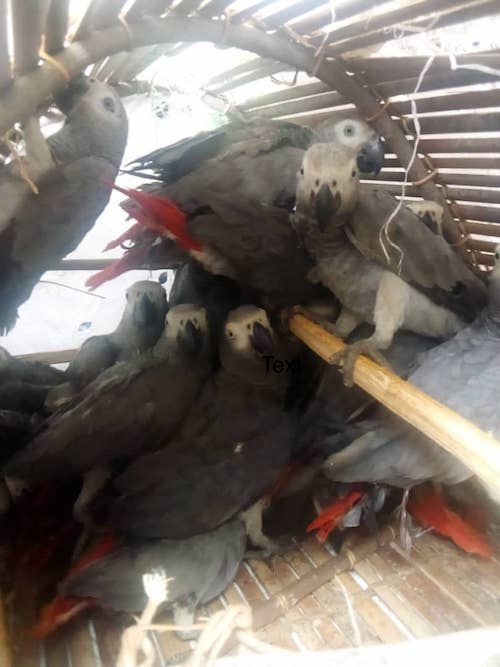
Thanks to our FlyFree programme, which helps parrots seized from trade, we were swiftly able to get vital funds and practical advice to the people on the ground to help stabilise the birds. As is typical for Grey parrots, the wing feathers had been cut so they couldn’t fly away – this meant a long-term plan was needed. We began working with regional partners to find a way to get the parrots to a safe environment where they could receive the care they need. It will take several months before they can be rehabilitated and returned to the wild. The nearest rescue centre with the capacity to care for these birds was hundreds of kilometres away.
An impressive team effort to get the parrots to their new home commenced involving the Institut Congolais pour la Conservation de la Nature (ICCN), Lwiro Primate Rehabilitation Centre (CRPL), Frankfurt Zoological Society (FZS), Conserv Congo and the World Parrot Trust, with everyone rising to the occasion and going above and beyond.
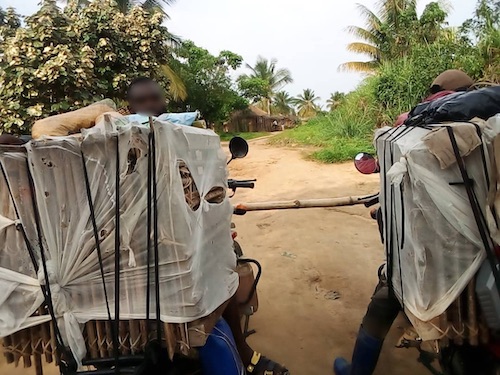
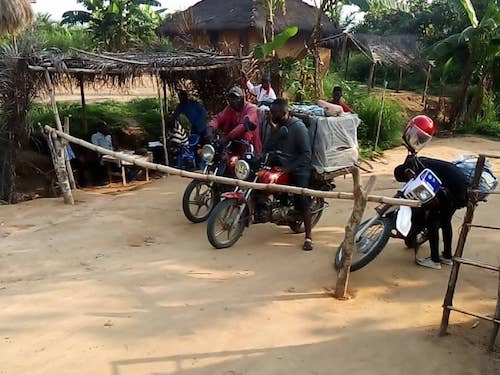
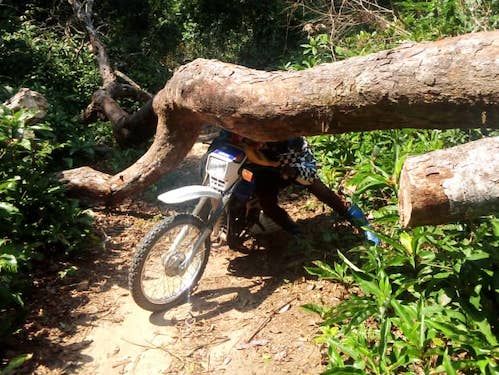
Tragically, on their second night in Lodja, the compound where the parrots were housed was broken into and around half of the parrots were stolen. It was clear that the parrots were not safe and needed to be moved to a safe and secure location as quickly as possible. The 28 remaining parrots were placed into purpose-built transport containers on the back of three motorbikes and set off on a tough 400km journey. The roads in this region are in incredibly poor condition and in some places impassable by 4x4s so motorbikes were the only options. It took the team three days of careful riding, navigating fallen trees, checkpoints and river crossings to reach Kindu.
Once in Kindu, the parrots were handed over to the ICCN and Frankfurt Zoological Society where they joined another group of 14 Grey parrots and a lone baby chimpanzee, also recently seized from traffickers.
The parrots were then transferred by plane to Goma where they were met by CRPL and embarked on a ferry trip the length of Lake Kivu before finally settling in a quarantine facility at Lwiro. Despite all else, the 28 parrots that left Lodja all survived the perilous journey, a clear testament to the commitment of everyone involved.
The African Grey parrots will now undergo individual health checks and begin their rehabilitation for eventual release to the wild. WPT would like to say an enormous thank you to the many people involved in these efforts who always put the parrots first.
